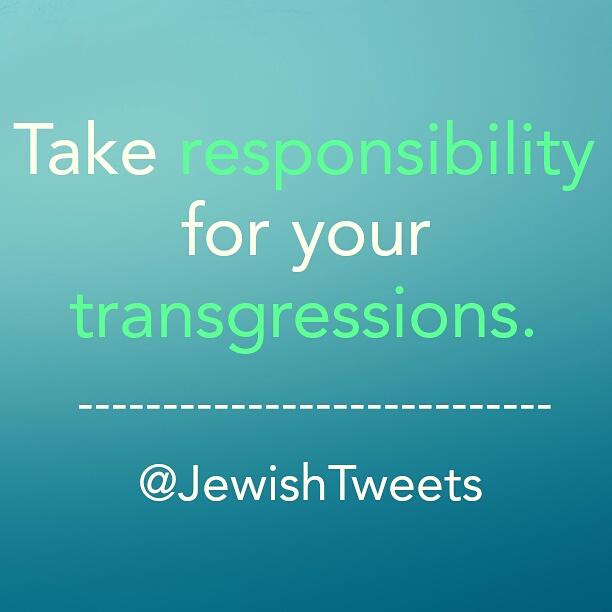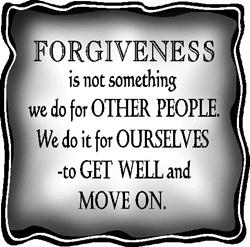One of my goals for EG right now is to start understanding the thoughts and processes behind an apology. It's been an interesting road to travel down, not just within our family, but within the preschool system, the mommy wars, and the Jewish culture.
It all started a long time ago when I read "It's okay not to share, Renegade Rules for Parenting" and learned a little more about saying "I'm Sorry." If I'm honest I hadn't given it much thought, but I had vivid memories of fights between my parents about those words. In my mothers world, the fact that I issued the words I'm sorry meant that all was well and good. In my fathers, those words meant nothing, and did nothing to change what ill I'd done. With that in mind, I agreed with Heather Shumaker and decided not to force EG to say she was sorry until it meant something and she could understand what the thoughts were behind the words.
Fast forward to EG being in school for a while and she comes home and issues 'sorry's' left and right. Just a quick little blip on the map, then moving on with her activity and day. And that's when I really began to feel like Ms.Shumaker was right. I don't want empty words to placate me. However, EG had been learning this at school and it's hard to start to undo what was already done there.
So I redoubled my efforts to get EG to offer something other than empty words. Ice or a hug when she hurt someone, help and a hand when she knocked something over. But that didn't go over very well on the local playground. I remember a vivid confrontation with one mother over my daughters lack of an apology. Mind you, EG helped the boy up, offered him a turn on the swing, and otherwise was a perfect lady when it came to sorting out the problem. But this mom only answered back with "Aren't you going to say you're sorry?"
Of course, I now realize the problem with that exchange wasn't just about saying it. It's with a fundamental misunderstanding in our culture today between the words "I'm Sorry" and "I apologize." These two things are fundamentally different, and this Yom Kippur I'm trying to set the record straight.
The definition of Sorry:
sor·ry
adjective
adjective: sorry; comparative adjective: sorrier; superlative adjective: sorriest
1.
feeling distress, especially through sympathy with someone else's misfortune.
The definition of Apology:
a·pol·o·gy
noun
noun: apology; plural noun: apologies
1.
a regretful acknowledgment of an offense or failure.
Notice the big difference? Sorry doesn't acknowledge any wrong doing on the part of the person involved. It makes no one take responsibility for their actions and acknowledge a failure. This could be a failure of communication, an accident, or an intentional infraction, but no matter what you caused it, and you should own up to it.
I've vowed this Yom Kippur to go beyond the surface and really get to the root of apologizing. To teach my children that there is no shame, fear or embarrasment about acknowledging you did something wrong. And as our children grow up one of the best things they can do as an adult is to accept their own failures, learn from them and move on. The new buzz word of the world is grit, and you can't have grit if you can't own up to your own mistakes.
So we'll be teaching EG a new way to apologize. Starting with word choice. From now on I say the words 'I apologize' when I mean it, and 'I'm sorry' when it's appropriate. I'm helping EG to correct her word choice to. And I'm offering up this model for her apologies:
1. I apologize for...
2. It was wrong because....
3. In the future I will...
4. Will you forgive me?
Of course, just because you apologize doesn't mean you get forgiveness. It can sometimes take more than just a heartfelt apology to rid your heart of the anger or hurt you feel. And EG has to learn that too. It's all about the argument between my parents. My mom was right that when someone truly apologizes that we should accept their apology. My dad was right that just because you say some words it doesn't mean that my plate isn't broken anymore... Jewish talmud teaches us that you have to apologize three times to someone, to truly mean it before you can consider yourself having apologized properly and moving on without forgiveness.
If we truly see Yom Kippur as an opportunity for apologies and forgiveness then we can all take a step in the right direction this year. I'm tired of the blanket 'if i did anything wrong, i'm sorry' approach, and I want to teach EG that she's better than that. I also believe that the heart of Yom Kippur honestly isn't about making apoligies, but rather learning to forgive.
I'm hoping that given time she will learn how to take responsibilities for her own actions, own up to the hurt she can cause others with her words and deeds, and then truly take the time to reflect and apologize. We all know how untempered resentment can build up inside when you feel hurt or taken advantage of. Hopefully when EG understands the steps to make amends she can make good friendships, be successful in school and work, and have lasting caring relationships. But that may be too much to put onto one little apology....?


